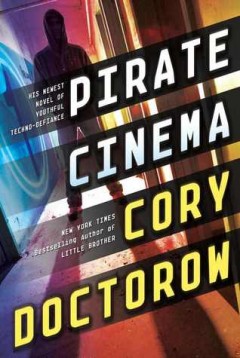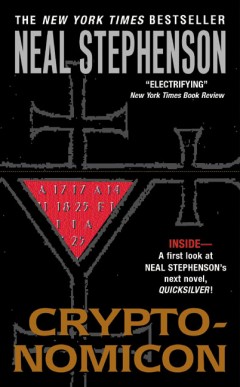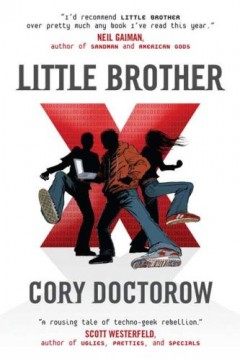
The Libertarian Futurist Society issued a press release on Saturday, July 20th, announcing this year’s winners of the Prometheus Award for Best Libertarian Novel and the Hall of Fame Award.
Best Novel
Winner
Finalists
Hall of Fame
Winner
Finalists
My thoughts on the results briefly: I still wish actual libertarian authors would win more often. Step up, people!

There are a number of familiar names listed here, including past winners Cory Doctorow, Sarah Hoyt, Dani and Eytan Kollin, Neal Stephenson, Poul Anderson, and Donald M. Kingsbury.
Tobias S. Buckell, Daniel Suarez, Lois McMaster Bujold, Harlan Ellison, and Rudyard Kipling have been finalists before.
In other words, no newcomers made it to finalist this year. I hope this doesn’t become a trend and that fresh talent is not being overlooked.
I haven’t read Pirate Cinema, but I have reviewed three of Doctorow’s previous novels: Little Brother (2009 winner), Makers (2010 finalist), and For the Win (2011 finalist). I hope that Doctorow was able to sustain his radical momentum through the end of the book this time around, but if he follows the pattern set in these other books I expect Pirate Cinema to have a rather milquetoast ending as well. I hope I’m wrong, because it won and it deals with timely and important issues surrounding civil liberties, intellectual property, and resistance.
[continue reading…]
Help Promote Prometheus Unbound by Sharing this Post

Cory Doctorow’s Little Brother is a tale about tech-savvy teenagers as they rebel against a Department of Homeland Security crackdown following a terrorist attack on San Fransisco. A piece of YA fiction that even adults can enjoy — it’s YA largely because of its teenage protagonists and its educational aim at young people — Little Brother is the 2009 Prometheus Award winner for best libertarian novel. Little Brother also won the John W. Campbell Memorial Award and was a finalist for the Hugo Award.
Little Brother is set entirely in San Fransisco, California, in the very near future. Much of the technology in the story is already available, and what is not can easily be conceived as being on the horizon. The story is told entirely in the first person, from the point of view of the main character, Marcus Yallow. Marcus at first goes by the handle w1n5t0n (Winston in leetspeak, a homage to George Orwell’s 1984, as is the title of the book) but later switches to M1k3y (which could be a reference to the computer Mike in Robert Heinlein’s The Moon is a Harsh Mistress).
As the story opens, we are introduced to Marcus and three of his friends — Jolu (Jose Luis), Van (Vanessa), and best friend, Darryl — who ditch school to play an ARG (Alternate Reality Game) called Harajuku Fun Madness in and around the city. They happen to have the misfortune of being in the wrong part of town when terrorists blow up the Bay Bridge. In the chaos and confusion that follows, they get picked up by the Department of Homeland Security and then subjected to several days of interrogation and psychological torture in a “Gitmo by the Bay” before being released (with the exception of Darryl) with threats to keep quiet about their experience…or else. But once set free, Marcus and his friends are disturbed to see their city being turned into a police state.
Marcus resolves to fight back against the DHS, to restore civil rights and liberties and to free Darryl. He soon becomes the unofficial leader of a growing, decentralized movement of rebellious teenagers. But his covert struggle starts to put a strain on his relationships with his family and friends.
[continue reading…]
Help Promote Prometheus Unbound by Sharing this Post










